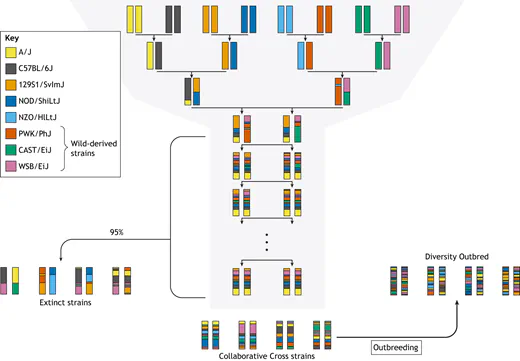Reproductive genomics of the mouse: implications for human fertility and infertility
Feb 13, 2023·,,·
0 min read
Alexis Garretson
Beth L. Dumont
Mary Ann Handel

Abstract
Genetic analyses of mammalian gametogenesis and fertility have the potential to inform about two important and interrelated clinical areas: infertility and contraception. Here, we address the genetics and genomics underlying gamete formation, productivity and function in the context of reproductive success in mammalian systems, primarily mouse and human. Although much is known about the specific genes and proteins required for meiotic processes and sperm function, we know relatively little about other gametic determinants of overall fertility, such as regulation of gamete numbers, duration of gamete production, and gamete selection and function in fertilization. As fertility is not a binary trait, attention is now appropriately focused on the oligogenic, quantitative aspects of reproduction. Multiparent mouse populations, created by complex crossing strategies, exhibit genetic diversity similar to human populations and will be valuable resources for genetic discovery, helping to overcome current limitations to our knowledge of mammalian reproductive genetics. Finally, we discuss how what we know about the genomics of reproduction can ultimately be brought to the clinic, informing our concepts of human fertility and infertility, and improving assisted reproductive technologies.
Type
Publication
Development